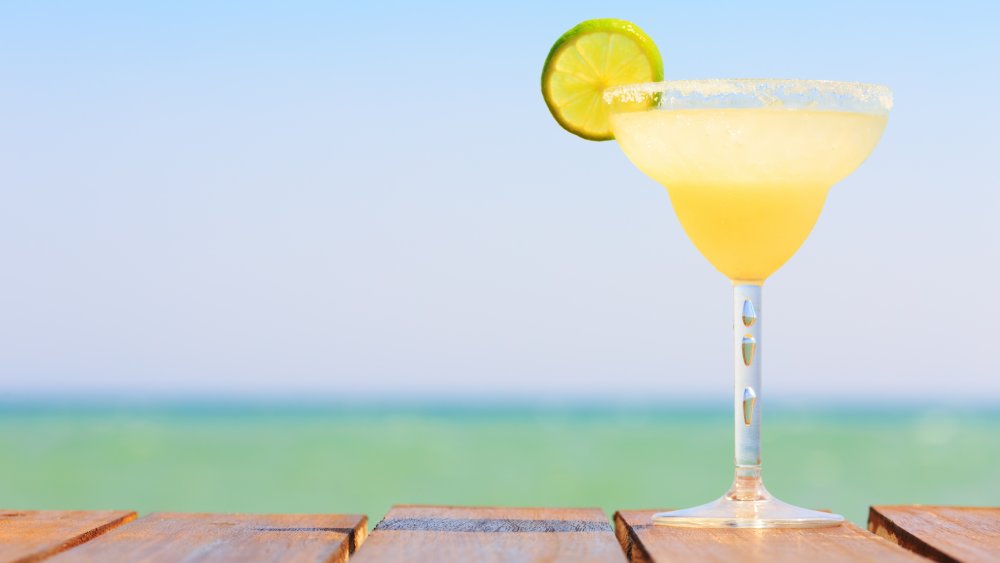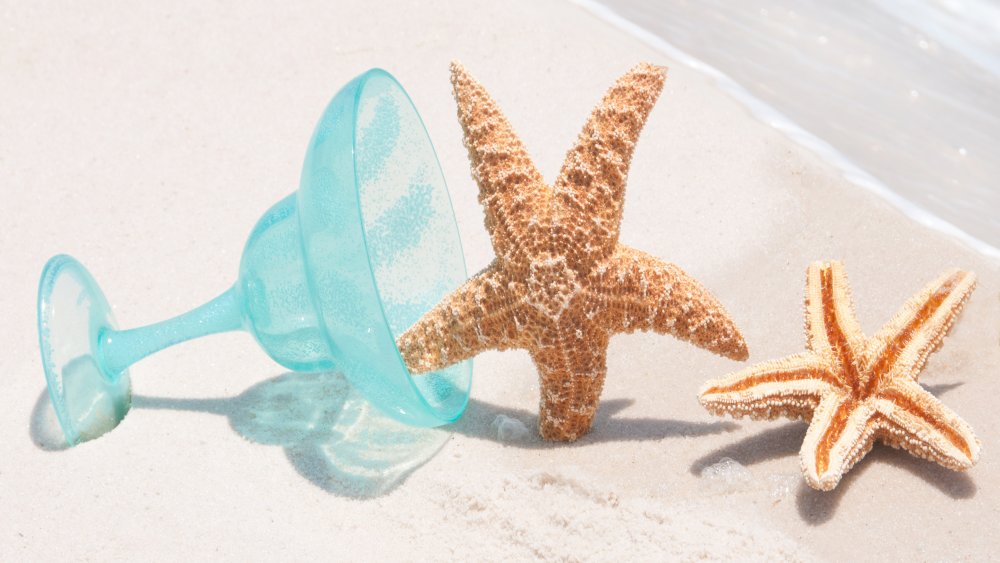The Truth About 'Margarita Burn'
Margaritas are a real summer cocktail staple. The refreshing lime, kick of tequila, and added sweetener all combine to make the perfect hot weather pick-me-up. Unfortunately for us all, lime and sunshine are not always a match made in heaven. According to Healthline, a painful condition called phytophotodermatitis can occur when furocoumarin, a chemical found in limes and other citrus fruits, is activated by the sun's UVA rays and then absorbed into the cells of the epidermis (aka your skin). This reaction causes a chemical burn that can lead to painful rashes, swelling, and blistering. Once the blisters goes down, Eplasty says these blisters can leave behind hyperpigmentation on the skin that could possibly last up to a few months.
This condition is more commonly called "margarita burn" and occurs when you spill or splash citrus juice on your skin. While mild cases typically clear up on their own within a few days and sometimes even go unnoticed, more intense cases of the condition can cause blisters severe enough to require a trip to the hospital if the concentration and amount of lime juice spilled is high enough.
Be cautious when mixing margaritas and hanging in the sun
Healthline states that if your skin is exposed to enough lime juice and then experiences a significant amount of sun exposure, it is possible to develop a severe case of margarita burn, resulting in blistering as intense as you would see from a second or third degree thermal burn. These burns can cause open sores and require medical attention. Sweaty or wet skin (like the kind you likely have at the beach or poolside) can also make the reaction worse. Mild cases of margarita burn can be treated similarly to a sunburn, with cool compresses, over the counter painkillers, and topical steroids. However, more severe cases of the condition have an increased risk of leading to a secondary infection if not treated properly. These cases are often treated with oral corticosteroids or antihistamines, according to Delish.
While this doesn't mean you need to stop drinking margaritas on the beach entirely, it is a good idea to be mindful of the amount of sun exposure you are getting. The CDC says it's always a good idea to protect yourself from too much sun by wearing hats or high-SPF clothing, staying in the shade, and of course, using sunscreen. Delish also recommends wearing gloves when preparing margaritas to be consumed in the sun and, if you do accidentally spill some lime juice on yourself, be sure to wash it off right away.

